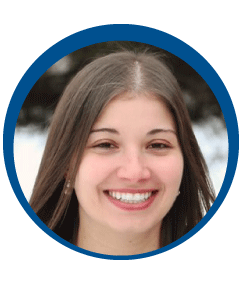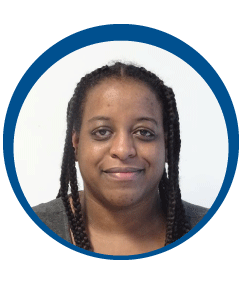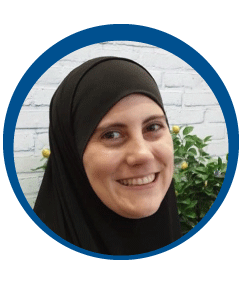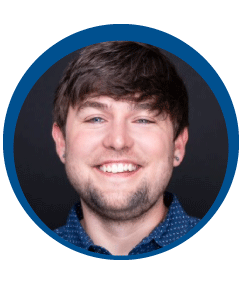Has your condition impacted your career or altered your career goals? If so, what positive steps have you taken to navigate these changes?
Jennifer:
 Starting university, my goal was to obtain my Honours Bachelor of Social Work degree. Despite arthritis, I achieved this. It definitely came with its set of struggles as I had to learn how to manage on-campus classes, homework, housework, relationships, medical appointments and symptoms. Luckily, I spoke to certain professors who were incredibly understanding and helpful when needed. Not all professors are like this though, so I would highly recommend signing up with the accessibility services at your college or university in order to get accommodations or additional support throughout your academic journey. They have a legal obligation to allow students with disabilities or health conditions to receive said services and opportunities.
Starting university, my goal was to obtain my Honours Bachelor of Social Work degree. Despite arthritis, I achieved this. It definitely came with its set of struggles as I had to learn how to manage on-campus classes, homework, housework, relationships, medical appointments and symptoms. Luckily, I spoke to certain professors who were incredibly understanding and helpful when needed. Not all professors are like this though, so I would highly recommend signing up with the accessibility services at your college or university in order to get accommodations or additional support throughout your academic journey. They have a legal obligation to allow students with disabilities or health conditions to receive said services and opportunities.
As I approached the end of my undergrad, I decided to pursue my studies in the Master of Social Work program at the same university in order to open doors of opportunities. Again, arthritis did not stop me from achieving this. I realized however, during this time, that I likely would not be able to work in my field necessarily to the same extent as some of my “healthy” peers. Working full-time was exhausting and made it almost impossible for me to have a life outside of work. As a result, I started working part-time only and eventually, I was able to find two or three part-time jobs that allowed me to work from home, with a flexible schedule, or with workplace accommodations. This allows me to modify my schedule in order to work around my medical appointments and treatments, all while continuing to work in the field that I love. If you are struggling at work, it may be a good idea to speak to your employer regarding possible workplace accommodations so that you can continue doing the work that you do.
There are many different ways to achieve your goals, despite having limitations. Asking for some workplace accommodations or accessibility services are sometimes essential in order for you to become the student or worker that you want to be.

Kiah:
 When I was younger, I was debating between being a Child Psychologist or an Archeologist, but being diagnosed with lupus, I cannot be out in the sun too long and I cannot overexert my body. I always need to be where I have close contact with specialists and doctors, because at any time I could have a flare up. I cannot always be on my feet for a long time because of the joint pains and arthritis. I had to cancel that idea and try to figure out other career paths. I was fortunate that I was only 17 and had not started university yet. So, it was not like I had already invested so much money and time into something and then had to go back to the job board. I decided to study Psychology at the University of British Columbia. I would later add Anthropology and got a double major degree. I am also passionate about helping kids, especially at-risk youth and youth living in poverty to make wise choices and rise above the situations that are holding them back. My dream would be to work at a refugee camp, because then I am still near professional doctors but also able to do what I love. So right now, I am in the process of getting all that experience so that I can find my dream job and travel. It will allow me to do what I want to do but kind of tweak it a little bit, so it meets all the medical needs that I have.
When I was younger, I was debating between being a Child Psychologist or an Archeologist, but being diagnosed with lupus, I cannot be out in the sun too long and I cannot overexert my body. I always need to be where I have close contact with specialists and doctors, because at any time I could have a flare up. I cannot always be on my feet for a long time because of the joint pains and arthritis. I had to cancel that idea and try to figure out other career paths. I was fortunate that I was only 17 and had not started university yet. So, it was not like I had already invested so much money and time into something and then had to go back to the job board. I decided to study Psychology at the University of British Columbia. I would later add Anthropology and got a double major degree. I am also passionate about helping kids, especially at-risk youth and youth living in poverty to make wise choices and rise above the situations that are holding them back. My dream would be to work at a refugee camp, because then I am still near professional doctors but also able to do what I love. So right now, I am in the process of getting all that experience so that I can find my dream job and travel. It will allow me to do what I want to do but kind of tweak it a little bit, so it meets all the medical needs that I have.

Allyson:
 Beforehand, I was working at a law firm a lot of hours. I was finishing my degree part-time. I wanted to finish my degree in accounting and business and then go to law school. [After losing my job due to disclosing my disability,] I’ve nixed the whole law school idea. But I’m really striving to get my accounting designation and working in that area. I have my internship at CIBC now, which is exciting. The [networking event for people with disabilities] I went to was called Lime Connect. They’re really good if you want to work in the business world. I ended up getting an interview for a summer internship. I didn’t actually understand what the job was until probably the third or fourth week that I was working there, but I’m really excited because it is in risk management. It actually deals with understanding laws that regulate the financial industry. So I am now within the legal area, but it also involves numbers and accounting at the same time. So it’s a combination of both. And there are a lot of different roles within this area. So I think it has changed my end goal, but I still have the same passions for the things I liked before I was sick. It has just sort of changed my perspective, and where I want to be, and the types of companies I want to work for. Lawyers are notoriously working a ridiculous number of hours and I knew I couldn’t do that anymore. That wasn’t going to be a reality for me. And even some people try to scare me with accountants, because with the big accounting firms it’s kind of the same thing. But with a lot of networking, you discover a lot of jobs that you didn’t know existed in the field you study.
Beforehand, I was working at a law firm a lot of hours. I was finishing my degree part-time. I wanted to finish my degree in accounting and business and then go to law school. [After losing my job due to disclosing my disability,] I’ve nixed the whole law school idea. But I’m really striving to get my accounting designation and working in that area. I have my internship at CIBC now, which is exciting. The [networking event for people with disabilities] I went to was called Lime Connect. They’re really good if you want to work in the business world. I ended up getting an interview for a summer internship. I didn’t actually understand what the job was until probably the third or fourth week that I was working there, but I’m really excited because it is in risk management. It actually deals with understanding laws that regulate the financial industry. So I am now within the legal area, but it also involves numbers and accounting at the same time. So it’s a combination of both. And there are a lot of different roles within this area. So I think it has changed my end goal, but I still have the same passions for the things I liked before I was sick. It has just sort of changed my perspective, and where I want to be, and the types of companies I want to work for. Lawyers are notoriously working a ridiculous number of hours and I knew I couldn’t do that anymore. That wasn’t going to be a reality for me. And even some people try to scare me with accountants, because with the big accounting firms it’s kind of the same thing. But with a lot of networking, you discover a lot of jobs that you didn’t know existed in the field you study.
I’ve found that I’m able to still do what I wanted to do even though I didn’t think I could. But you have to find your niche that works for you and say, “OK, this is what I’m capable of. What are the jobs that I can do in this area that are still going to allow me to have a work-life balance, where I’m not going to exhaust myself?” I think the biggest thing for people with our type of condition is just understanding your limits. Don’t let go of your passions just because you know you have these limits. You can still pursue them. You might just have to find a different way to do it. Look for companies that take that initiative and want to support people with disabilities. Join networking events with companies that take the initiative to hire people with disabilities and want to accommodate you. Look into the companies you apply for and be selective. I think that’s the best thing and that’s how you are going to have the most positive experience.

James:
 Well, the first question I asked when I was diagnosed was, “does it affect your ears?” That’s all I really care about. The answer to that is no, so that was nice to hear.
Well, the first question I asked when I was diagnosed was, “does it affect your ears?” That’s all I really care about. The answer to that is no, so that was nice to hear.
Learning to play the piano has been difficult because it’s a daily routine to get the practice down. I started on that, and then my fingers were in a lot of pain, so I work around it and use computers to do it for me.
[Working from home currently means I don’t] have our office chairs and whatnot, so I’m dealing with ergonomic issues. I had to buy some cushions for my chair. So things like that, comfort at work. That’s always been a struggle. And I just take breaks. At least at my old job, I would take breaks and go for a walk. And I kind [of don’t care if my boss has] an issue with it (laughs). Other than that, it doesn’t affect my ears so I should be okay in that.